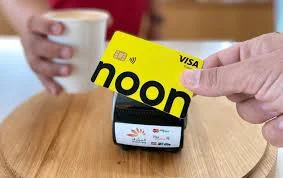In a landmark move for digital commerce, Visa and Noon Payments have teamed up to introduce Visa Payment Passkey, touted as the world’s first global merchant passkey solution, enabling merchants and consumers to transact online without passwords or one-time codes.
What Is a Visa Payment Passkey?
-
It’s grounded in FIDO (Fast Identity Online) standards, meaning authentication is device-bound and biometrics or device PINs can be used instead of static passwords or SMS one-time passcodes.
-
Biometric data never leaves the consumer’s device, making it more resistant to phishing, credential replay, and many forms of fraud.
-
The passkey integrates with Visa’s broader acceptance stack, including tokenisation and Click to Pay, to blend authentication, acceptance, and security seamlessly.
What This Means for the Payment Industry
This launch could mark a turning point in how authentication in digital transactions is handled. If widely adopted:
-
We may see a shift away from OTPs and passwords in e-commerce.
-
The standardization of passkey-based payment flows could accelerate globally.
-
Fraud mitigation strategies might lean more heavily on device-bound credentials, making attacks like phishing or credential stuffing less effective.
In short, Visa and noon payments have set in motion a new model for how checkout can work: fast, secure, and more user friendly.
How Noon Payments & Visa Are Rolling It Out
-
The initial phase is in the Middle East, where noon payments will make the passkey option available to merchants already using its payments network, with no need for a complete rebuild.
-
Later expansions are planned across broader geographies and merchant types.
-
noon payments had previously introduced Mastercard Payment Passkey in 2024; adding Visa’s version broadens the coverage for merchants and cardholders on its platform.
In the words of Mosam Gadia, SVP at Noon Payments:
“Our goal is simple – to make payments easier and safer for everyone.”
Godfrey Sullivan, SVP for Products & Solutions at Visa CEMEA, adds that the biometric-first model not only boosts security but also supports higher conversion rates for merchants.
Challenges & Considerations
-
Device compatibility: For users whose devices don’t support the required biometric or FIDO features, fallback mechanisms may still be needed.
-
Adoption inertia: Merchants and PSPs may resist switching or integrating new systems until a clear ROI is visible.
-
Regulations & privacy: Different regions have different data protection laws; ensuring compliance will be vital, especially as biometric data is in play.
-
Consumer education: Some users might be hesitant to adopt “passwordless” systems unless they trust the security and understand how it works.
Redefining Digital Commerce
This launch could mark a turning point in how authentication in digital transactions is handled. If widely adopted:
-
We may see a shift away from OTPs and passwords in e-commerce.
-
The standardisation of passkey-based payment flows could accelerate globally.
-
Fraud mitigation strategies might lean more heavily on device-bound credentials, making attacks like phishing or credential stuffing less effective.
Visa and Noon payments have set in motion a new model for how checkout can work: fast, secure, and more user friendly.















